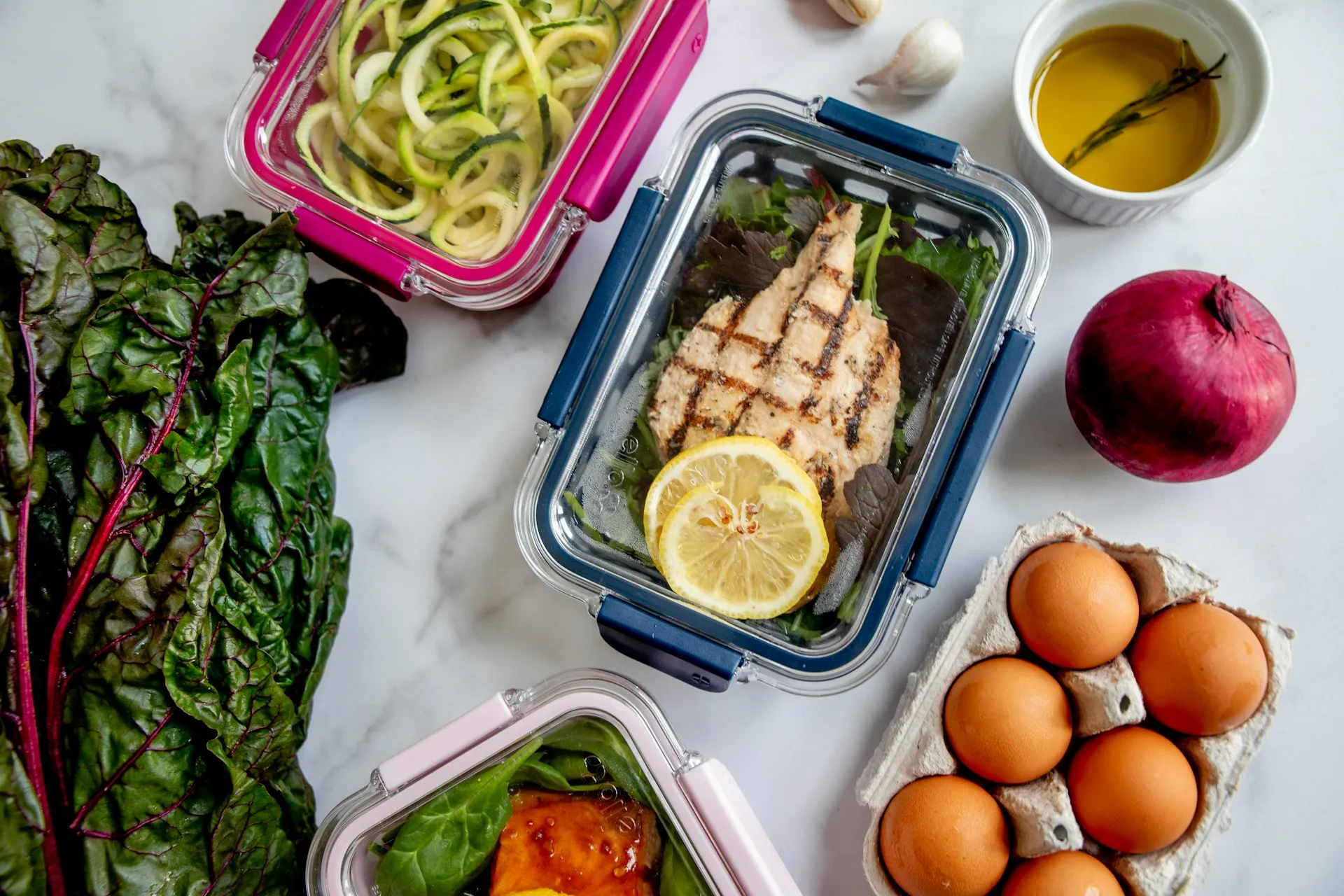Introduction to Fitness Nutrition
Proper nutrition is the foundation of any successful fitness regimen. While exercise is crucial for building strength, endurance, and overall fitness, what you eat provides the fuel for your workouts and the building blocks for recovery and growth. This comprehensive guide will help you understand how to eat to support your fitness goals, whether you’re a beginner or an experienced athlete.
Understanding Macronutrients
Protein: The Building Block
Protein is essential for muscle repair and growth. When you exercise, especially during strength training, you create microscopic tears in your muscle fibers. Protein provides the amino acids needed to repair these tears, leading to stronger, more developed muscles.
Recommended intake: 1.6-2.2g per kg of bodyweight for active individuals
Best sources:
- Lean meats (chicken, turkey, lean beef)
- Fish and seafood
- Eggs
- Dairy products (Greek yogurt, cottage cheese)
- Plant-based options (tofu, tempeh, legumes, seitan)
- Protein supplements (whey, casein, plant-based proteins)
Carbohydrates: Your Primary Fuel Source
Carbohydrates are your body’s preferred energy source, especially during high-intensity exercise. They’re stored in your muscles and liver as glycogen, which is readily available to fuel workouts.
Recommended intake: 3-7g per kg of bodyweight, depending on activity level and goals
Best sources:
- Whole grains (oats, brown rice, quinoa)
- Fruits
- Vegetables
- Legumes
- Potatoes and sweet potatoes
Fats: Essential for Hormones and Health
Dietary fats play crucial roles in hormone production (including testosterone and estrogen), vitamin absorption, and overall health. They also provide a concentrated source of energy, particularly for lower-intensity activities.
Recommended intake: 0.5-1.5g per kg of bodyweight
Best sources:
- Avocados
- Nuts and seeds
- Olive oil
- Fatty fish (salmon, mackerel)
- Eggs
Meal Timing and Frequency
Pre-Workout Nutrition
Eating before exercise provides the energy needed for optimal performance. Your pre-workout meal should focus on easily digestible carbohydrates with moderate protein and low fat to minimize digestive discomfort.
Timing: 1-3 hours before exercise, depending on meal size Example meals:
- Oatmeal with banana and a scoop of protein powder
- Toast with eggs and fruit
- Yogurt with berries and granola
Post-Workout Nutrition
After exercise, your body is primed to absorb nutrients for recovery. Your post-workout meal should include protein for muscle repair and carbohydrates to replenish glycogen stores.
Timing: Within 2 hours after exercise Example meals:
- Protein shake with banana
- Chicken with rice and vegetables
- Salmon with sweet potato and broccoli
Daily Meal Frequency
Research shows that total daily intake matters more than meal frequency for most fitness outcomes. However, spreading your protein intake throughout the day (every 3-5 hours) may optimize muscle protein synthesis.
Practical approach:
- 3-5 meals per day based on preference and schedule
- Include protein at each meal
- Adjust meal size based on proximity to workouts
Hydration for Performance
Water is often overlooked but is critical for performance. Even mild dehydration can significantly impair strength, power, and endurance.
Guidelines:
- Minimum 3-4 liters of water daily for active individuals
- Additional 16-20 oz for every hour of exercise
- Monitor urine color (pale yellow indicates good hydration)
- Consider electrolytes during longer sessions (>60 minutes)
Nutrition for Specific Fitness Goals
Building Muscle (Hypertrophy)
To build muscle, you need a slight caloric surplus combined with sufficient protein and progressive resistance training.
Key strategies:
- Caloric surplus of 250-500 calories above maintenance
- Higher protein intake (1.8-2.2g/kg bodyweight)
- Prioritize carbs around workouts
- Focus on nutrient-dense whole foods
Fat Loss While Maintaining Muscle
Losing fat while preserving muscle requires a caloric deficit while maintaining protein intake and training intensity.
Key strategies:
- Moderate caloric deficit (300-500 calories below maintenance)
- High protein intake (2.0-2.4g/kg bodyweight)
- Prioritize whole, satiating foods
- Maintain training volume and intensity
- Consider carb cycling or nutrient timing
Endurance Performance
Endurance athletes have unique nutritional needs, particularly regarding carbohydrate intake for fuel.
Key strategies:
- Higher carbohydrate intake (5-10g/kg bodyweight)
- Strategic carb loading before events
- Intra-workout nutrition for sessions >90 minutes
- Focus on recovery nutrition
- Iron and antioxidant-rich foods
Supplements Worth Considering
While whole foods should form the foundation of your nutrition plan, certain supplements have strong evidence supporting their use:
- Protein powder: Convenient for meeting protein targets
- Creatine monohydrate: Improves strength, power, and muscle growth
- Caffeine: Enhances performance and reduces perceived exertion
- Vitamin D: Essential for those with limited sun exposure
- Omega-3 fatty acids: Support recovery and overall health
Practical Meal Planning Tips
Meal Prep Strategies
Preparation is key to consistent nutrition. Consider these approaches:
- Batch cook proteins and carbohydrates 2-3 times weekly
- Prepare grab-and-go snacks
- Use a template approach rather than strict meal plans
- Keep emergency options available (protein bars, fruit, nuts)
Eating Out While Staying on Track
Social situations don’t have to derail your nutrition:
- Review menus in advance
- Focus on protein and vegetables
- Ask for modifications (dressings on the side, grilled instead of fried)
- Consider intermittent fasting strategies for special occasions
Conclusion
Nutrition doesn’t need to be complicated to be effective. Focus on these fundamentals:
- Consume adequate protein
- Eat mostly whole, minimally processed foods
- Stay hydrated
- Adjust total calories based on your goals
- Be consistent with the basics rather than perfect with the details
Remember that the best nutrition plan is one you can sustain long-term. Experiment with different approaches to find what works best for your body, preferences, and lifestyle.
